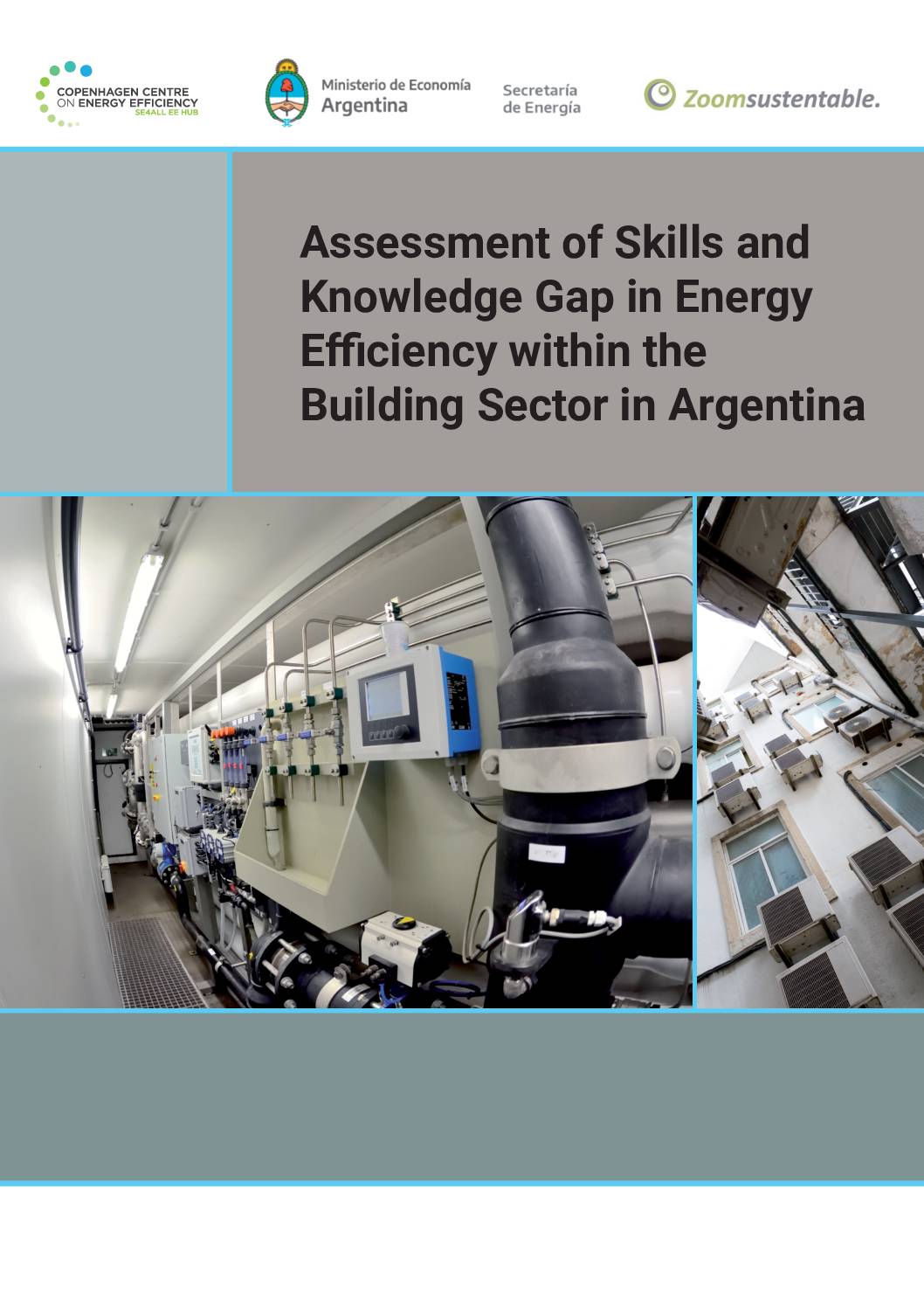The aspects that define the transition towards sustainable development include energy use strategies as well as measures for implementing energy efficiency in four main sectors: buildings, transportation, commerce and industry. Energy efficiency can be understood as the set of actions that improve the relation between the amount of energy consumed and the products and services obtained from using such energy, without affecting users’ quality of life. To achieve this, it is necessary to implement energy management measures as well as to invest in more efficient technologies, to employ more efficient production processes and to improve habits leading to a responsible use.
Argentina, in turn, has proposed to implement energy efficiency measures aiming to reduce energy demand by 8.3% by the year 2030. According to the last National Energy Balance (BEN, for its Spanish acronym), buildings produce 33% of energy demand in Argentina and contribute to 20.8% of the country’s greenhouse gas emissions. Therefore, those improvements implemented in building energy efficiency will have a direct impact on energy consumption reduction and will lead to a reduction of greenhouse gas emissions, which represents a key tool for climate change mitigation.
Within the context of the National Action Plan on Energy and Climate Change [Plan de Acción Nacional de Energía y Cambio Climático], there are strategies focused on the supply side: renewable sources for grid-connected or isolated power, distributed power generation, biofuels, hydroelectric power plants, nuclear power plants, replacement of fossil energy with a higher emission factor by natural gas, and improvements in thermal power plants efficiency; and on the demand side: water economizers, solar water heaters, public lighting measures, efficiency in household appliances, heat pumps, building thermal envelopes, efficient heaters and residential lighting.
Development Goals, it is possible to cooperatively relate the issue regarding energy efficiency in buildings (EEB) with many of them: Sustainable Development Goals 4 (4.7 Education for DG), SDGs 7 (7.3 Increase in world’s energy efficiency improvement rate), 11 (11.c Support (financial and technical assistance to build sustainable and resilient buildings using local materials), 12 (12.2 Sustainable management and the efficient use of natural resources), 13 (13.1 Strengthening of resilience and ability to adapt to climate and natural disasters related risks, and 13.2 Incorporation of climate change related measures into national policies, strategies and plans), and 17 (17.6 Cooperation in terms of science, technology and innovation, 17.7 Promotion of the development, transfer, dissemination and diffusion of environmentally sound technologies, 17.9 International support for an effective and specific capacity development in SDGs implementation, among others. Argentina’s commitment to monitoring and meeting SDGs targets can be an ally for the EEB expansion at national level.
Energy efficiency development in the building sector presents several challenges, from the need of a regulatory and institutional framework, the access
to the technologies and capabilities needed for its implementation and professionals who have the skills and knowledge to meet the incipient demand of staff trained in the application of technologies for energy efficiency.
This project aims to look into the possibility of increasing and strengthening the skills of decision makers and professionals working in the private and
public sector who are involved in the Building Energy Efficiency Sector (hereinafter referred to as EEB) environment by means of recommendations on how to provide and improve their skills and knowledge in such sector in Argentina.
Share this

Sector: Buildings
Country / Region: Argentina
Tags: emissions, implementation, natural resource use, projects, quality of life, rail transport, sustainable development, targets, water resourcesIn 2 user collections: Urban Climate Neutrality (Argentina) , C2E2 Publications
Knowledge Object: Publication / Report
Published by: Copenhagen Centre on Energy Efficiency
Publishing year: 2021
Author: Leila Schein, Mariano Asensio, Gabriela Soler Barbarán, Talat Munshi, Ivana Audia
